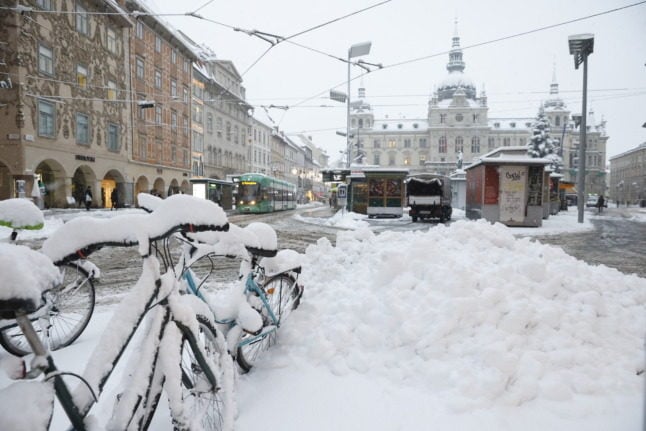The decision was announced by the public health authority on Thursday. Along with Austria, Belize, Bosnia, Malaysia and Serbia were removed from the high-risk list.
The USA, Spain, Finland, Portugal, Cyprus and Monaco were all upgraded to the ‘high risk’ category.
Austria had previously been categorised as a ‘high risk’ country, meaning travellers entering Germany from across the border had to fill in a Digital Entry Form and submit proof of vaccination, recovery or a negative test.
READ ALSO: EXPLAINED: What are the rules for entering Germany this Christmas and New Year?
Unvaccinated people were also required to quarantine for 10 days – or five with a further negative test.
The change is good news for ski resort and hotel operators in Austria, as the loosened travel rules are likely to give the seasonal economy a much-needed boost.
Welcoming the news, Austrian Tourism Minister Elisabeth Köstinger credited the country’s “successful safety measures” and “proven prevention concepts” with convincing its neighbouring country.
“With about 37 percent of all overnight stays in the winter season, Germany is the largest and most important source market,” she said. “The fact that we were again classified as a high-risk area due to the high infection figures in November was therefore particularly bitter.”
Amid spiralling Covid infections, Austria enforced a three-week national lockdown in November, which was lifted for vaccinated people on December 12th.
However, with fears growing over the highly transmissible Omicron variant, the lockdown was extended for the unvaccinated on December 21st.
Meanwhile, Germany has tightened its entry rules slightly in the run up to the festive season.
Since Thursday, all entrants over the age of six must carry proof that they have been vaccinated or have recovered and have also been PCR-tested.
Previously, this only applied to people aged twelve and over.



 Please whitelist us to continue reading.
Please whitelist us to continue reading.
Member comments